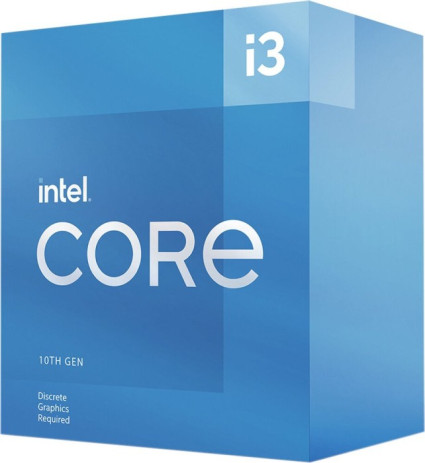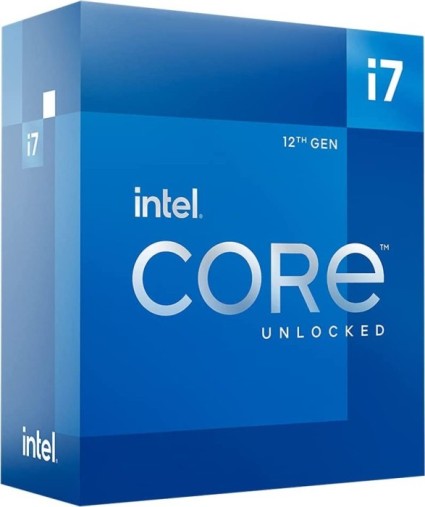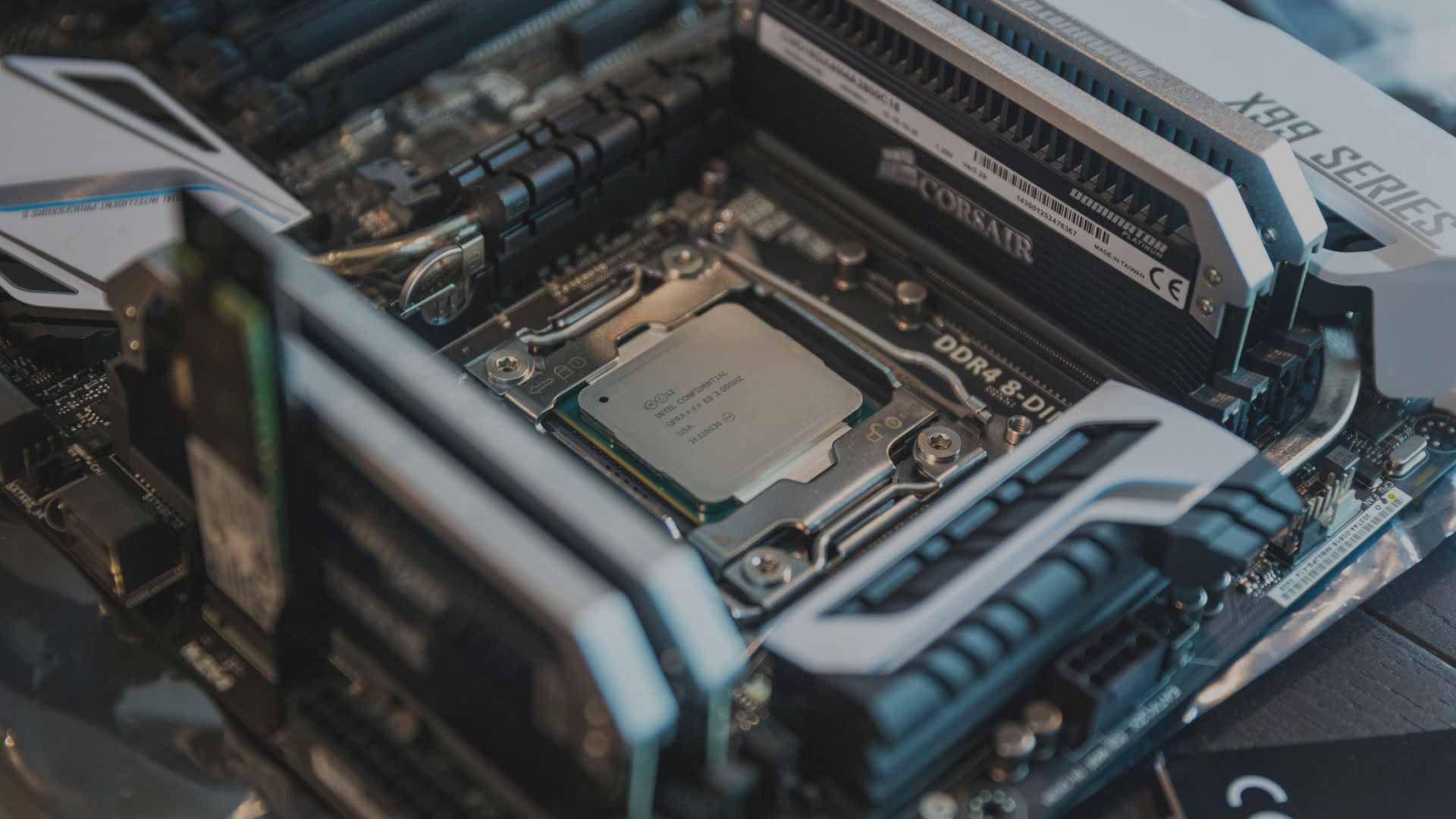
Intel Core i3-10105F vs. Intel Core i7-12700K
In diesem Vergleich von Intel Core i3-10105F versus Intel Core i7-12700K vergleichen wir die technischen Daten der beiden GPUs. Welche Grafikkarte ist schneller? Hier gibt es FPS & Benchmarks in Gaming und Anwendungen. Außerdem Daten zu Verbrauch, Effizienz (FPS pro Watt) und Preis-Leistung (FPS pro Euro).

Allgemeine Informationen
| Günstigster Preis |
|
|
| Serie | Intel Core i-10000 | Intel Core i-12000 |
| Chip-Architektur | Comet Lake | Golden Cove (P-Core) + Gracemont (E-Core) |
| Codename | Comet Lake-S | Alder Lake-S |
| Produktname | Intel Core i3-10105F | Intel Core i7-12700K |
Spezifikationen
Die Anzahl der Rechenkerne, die maximale Taktrate und die Größe des Cache können sich auf die Leistung in Spielen und Anwendungen auswirken. Mit 4 Kernen bietet der Intel Core i3-10105F deutlich weniger Kerne als der Intel Core i7-12700K mit 12 Rechenkernen. Der maximale Takt liegt beim Intel Core i3-10105F mit 4.40 GHz niedriger als beim Intel Core i7-12700K mit 5.00 GHz. Der Cache ist beim Intel Core i3-10105F mit 1 MB L2-Cache + 6 MB L3-Cache zu 12 MB L2-Cache + 25 MB L3-Cache kleiner als beim Intel Core i7-12700K.
| Kerne (Gesamt) | 4 | 12 |
| Anzahl P-Cores | 4C | 8C |
| Anzahl E-Cores | - | 4c |
| Basis-Takt | 3.70 MHz | 3.60 MHz |
| Takt P-Cores | 3.70 MHz | 3.60 MHz |
| Takt E-Cores | - | 2.70 MHz |
| Turbo-Takt | 4.40 MHz | 5.00 (Turbo Boost Max 3.0) MHz |
| Turbo P-Cores | 4.40 MHz | 5.00 (Turbo Boost Max 3.0) MHz |
| Turbo E-Cores | - | 3.80 MHz |
| Gesamter L2-Cache | 1 MB | 12 MB |
| Gesamter L3-Cache | 6 MB | 25 MB |
| Fertigung | Intel 14 nm++ | Intel 7 |
| Leistungsaufnahme (TDP) | 65W | 125W (Processor Base Power)<br/>190W (Maximum Turbo Power) |
Mainboard-Kompatibilität
Während der Intel Core i3-10105F den Intel 1200 Sockel nutzt, ist der Intel Core i7-12700K mit Mainboards für den Sockel Intel 1700 kompatibel. Die genaue Chipsatz-Eignung und die unterstützten PCIe-Lanes können Sie der Tabelle entnehmen.
| Sockel | Intel 1200 | Intel 1700 |
| Chipsatz-Eignung | B460, B560, H410, H470, H510, H570, Q470, W480, Z490, Z590 | B660, B760, H610, H610E, H670, H770, Q670, Q670E, R680E, W680, Z690, Z790 |
| PCIe-3.0-Lanes | 16x | - |
| PCIe-4.0-Lanes | - | 4x |
| PCIe-5.0-Lanes | - | 16x |
RAM-Kompatibilität
Während Sie beim Intel Core i3-10105F bis zu 128 GB vom Typ DDR4 im Dual Channel verbauen können, unterstützt der Intel Core i7-12700K bis zu 128 GB DDR4/DDR5 Arbeitsspeicher.
| Speicher-Controller | DDR4 | DDR4/DDR5 |
| Anzahl Speicherkanäle | Dual Channel | Dual Channel |
| max. Speichermenge | 128 GB | 128 GB |
| ECC-Unterstützung | - | ✓ |
Grafik
| iGPU | - | ✓ |
| iGPU-Modell | - | Intel UHD Graphics 770 |
| iGPU-Takt | - | 0,30-1,50GHz |
| iGPU-Einheiten | - | 2Xe/32EU/256SP |
| iGPU-Rechenleistung | - | 0.77 TFLOPS (FP32) |
| iGPU-Architektur | - | Xe-LP / Gen 12.2, Codename "Alder Lake GT1" |
| iGPU-Interface | - | DP 1.4a (7680x4320@60Hz), eDP 1.4b (5120x3200@120Hz), HDMI 2.1 (4096x2160@60Hz) |
| iGPU-Funktionen | - | 4x Display Support, 2x Codec Engines / Video Decode Boxes, Intel Clear Video HD, Intel Quick Sync Video, AV1 decode, H.265 encode/decode, VP9 encode/decode, HDCP 2.3, DirectX 12, OpenGL 4.5, OpenCL 3.0, Vulkan 1.0 |
Sonstiges
| Freier Multiplikator | - | ✓ |
| Stepping | G1, Spec Code: SRH8V | C0, Spec Code: SRL4N |
| Heatspreader-Kontaktmittel | Wärmeleitpaste | Metall/verlötet |
| Temparatur max. | 100°C (Tjunction) | 100°C (Tjunction) |
| Fernwartung | - | ✓ (Intel vPro Enterprise) |
| Einführung | 2021/Q1 | 2021/Q4 (4.11.2021) |
| Herstellergarantie | 3 Jahre bei Intel® Boxed-Prozessoren (Info DE/Info EN) | 3 Jahre bei Intel® Boxed-Prozessoren (Info DE/Info EN) |
CPU-Funktionen
| AES-NI | ✓ | ✓ |
| AVX | ✓ | ✓ |
| AVX2 | ✓ | ✓ |
| Boot Guard | ✓ | ✓ |
| CET | - | ✓ |
| DL Boost | - | ✓ |
| EIST | ✓ | ✓ |
| GNA 3.0 | - | ✓ |
| Idle States | ✓ | ✓ |
| Instruction Set | ✓ | ✓ |
| ISM | - | ✓ |
| MBEC | - | ✓ |
| Optane Memory Support | ✓ | ✓ |
| OS Guard | ✓ | ✓ |
| Secure Key | ✓ | ✓ |
| Speed Shift | - | ✓ |
| SSE4.1 | ✓ | ✓ |
| SSE4.2 | ✓ | ✓ |
| Thermal Monitoring | ✓ | ✓ |
| VMD | - | ✓ |
| VT-d | ✓ | ✓ |
| VT-x | ✓ | ✓ |
| VT-x EPT | ✓ | ✓ |
| XD Bit | ✓ | ✓ |
Spiele
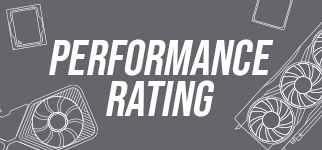
- Intel Core i7-12700KAVG195.10 %1%208.61 %
- Intel Core i3-10105FAVG100.00 %1%100.00 %

- Intel Core i3-10105FAVG70 FPS1%41.6 FPS
- Intel Core i7-12700KAVG223 FPS1%157.4 FPS

- Intel Core i3-10105FAVG277.7 FPS1%182.4 FPS
- Intel Core i7-12700KAVG515.4 FPS1%265.2 FPS

- Intel Core i3-10105FAVG84 FPS1%48.1 FPS
- Intel Core i7-12700KAVG140.8 FPS1%100.3 FPS

- Intel Core i3-10105FAVG112.3 FPS1%82.4 FPS
- Intel Core i7-12700KAVG185.2 FPS1%131.1 FPS

- Intel Core i3-10105FAVG86.8 FPS1%59.6 FPS
- Intel Core i7-12700KAVG137.2 FPS1%100.6 FPS

- Intel Core i3-10105FAVG132.9 FPS1%73.1 FPS
- Intel Core i7-12700KAVG214.6 FPS1%141.1 FPS

- Intel Core i3-10105FAVG45.1 FPS1%33.2 FPS
- Intel Core i7-12700KAVG77.2 FPS1%58.8 FPS

- Intel Core i3-10105FAVG109.9 FPS1%60.2 FPS
- Intel Core i7-12700KAVG256.5 FPS1%143.6 FPS

- Intel Core i7-12700KAVG0.87 FPSIntel Core i3-10105FAVG1.49 FPS

- Intel Core i7-12700KAVG2.55 FPSIntel Core i3-10105FAVG3.22 FPS
Produktivität

- Intel Core i7-12700KAVG242.14 %Intel Core i3-10105FAVG100.00 %

- Intel Core i7-12700KPKT106592 PunkteIntel Core i3-10105FPKT34696 Punkte

- Intel Core i7-12700KPKT1293 PunkteIntel Core i3-10105FPKT699 Punkte

- Intel Core i7-12700KPKT846 PunkteIntel Core i3-10105FPKT388 Punkte
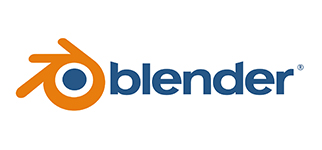
- Intel Core i7-12700KSEK281 SekundenIntel Core i3-10105FSEK991 Sekunden

- Intel Core i7-12700KPKT1149 PunkteIntel Core i3-10105FPKT314 Punkte

- Intel Core i7-12700KPKT2807 PunkteIntel Core i3-10105FPKT1623 Punkte

- Intel Core i7-12700KPKT15251 PunkteIntel Core i3-10105FPKT5216 Punkte

- Intel Core i7-12700KSEK71 SekundenIntel Core i3-10105FSEK225 Sekunden
